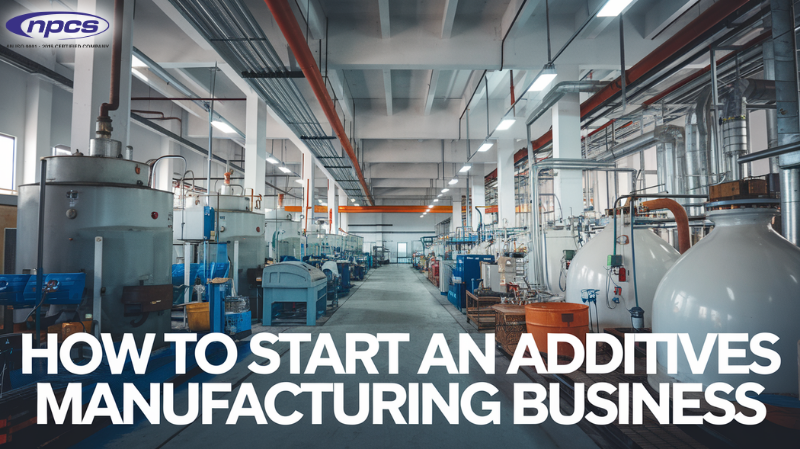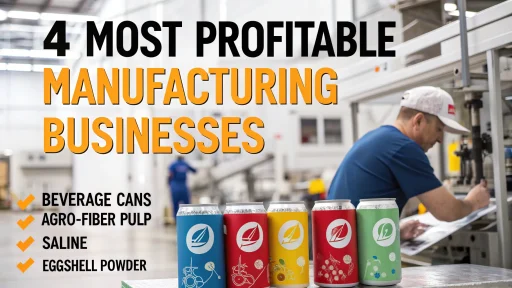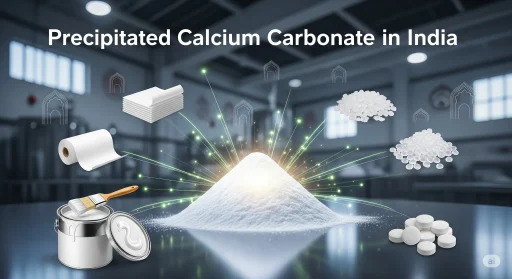The significance of design additives should be understood by industrial designers. Additives improve the functionality and caliber of structures and goods. They successfully increase stability, shelf life, and general usefulness. Wide-ranging applications raise demand and readily provide economic opportunities. Entrepreneurs can launch businesses that produce these necessary chemicals. This tutorial covers product comprehension and market potential insights. It outlines the production procedures necessary to launch a profitable company. Success strategies aid in launching a business that manufactures additives.
What are Additives?
Additives are chemical substances which perform specific functions in products used in a minute quantity. There are many types of additives which can include the following:
-
Plastic Additives: Manufacturers use these structural materials to reduce the weight, durability and impact resistance of flexible plastic molded parts.
-
Food Additives: Producers incorporate these functional substances into food products to prolong and/or triumph over one or another organoleptic effect.
-
Pharmaceutical Additives: Added to medications to increase their stability and effectiveness.
- Cosmetic Additives: Primary purposes of these ingredients are to enhance texture, stability, and overall effectiveness of the product.
Additives can be derived from natural sources or they can be man made and are critical in a number of production processes.
Why Start an Additives Manufacturing Business?
Investing in the additives sector can be a wise move for the following reasons:
End Use Variability
Various industries like plastics, food processing, pharmaceuticals, and personal care can produce additives, making it a product line with broad scope.
Rising Consumption
Manufacturers widely use additives today, especially in food preservation and plastic making, due to the changing business environment, rising population, and increased need to produce quality goods.
Industrial Significance
A number of industries heavily use additives to ensure that their products are effective and so return on investment is assured in the long run.
Flexibility
With the production of additives, one can start a scale of production within small capacities or even go large allowing for entrepreneurs to start small and grow with demand.
Join Us : Niir Projects Consultancy Services
Niir Projects Consultancy Services
Benefits of Starting an Additives Business
- Growing Market: The rapid industrial development and increasing product enhancement needs make the additives market very dynamic.
- Diverse Applications: Varying aspects of the sector are presented basing various utilization targets hence diversity of business and incomes.
- Scalability: The operation can initiate on a low basis and subsequently increase based on the market and the growth of the enterprise.
- Global Opportunities: This is an opportunity where the market is available all through therefore allowing for its export as well as any international business activity.
Top Applications of Additives
Additives are used across many sectors which include:
Plastics
Additives improve the characteristics that are plastic materials enhancing the strength, durability and flexibility of the said materials. They are useful in the manufacture of packaging materials, car parts and household items.
Food and Beverages
Additives are included with foods to maintain the freshness of it, to make it taste better, and to add to its nutritional value. These may include preservatives and colorants for instance and flavor enhancers.
Pharmaceuticals
Pharmaceutical excipients play a major role in drug stability and efficacy with regards to absorption and effectiveness.
Personal Care Products
In skincare and cosmetics, textures, viscosity, and usability are enhanced by use of additives for improved satisfaction of customers.
Production Methods
There are a number of technical steps when setting up an additives manufacturing business for the first time. These include:
Raw Material Procurement
All production activities begin with the acquisition of primary raw materials. In the case of primary raw materials and additives to be manufactured; polymers, stabilizers, and emulsifiers may be some of the materials included.
Formulation Development
The next important stage is the development of a proper formulation. This includes the creative phase where various raw materials are put together and tested to attain the performance that is sought.
Dissolution and Processing
After the formulation has been approved, mixing and compounding come into play. This stage contains the use of heat to combine the powders and other components into a homogenous mix using specialized equipment.
Quality Assurance
Quality control procedures must be applied to stages of production. It is done by checks and control of in-process materials and finished goods to include the relevant standard specifications.
Packing and Storage
Additives are produced in bulk and after which careful packaging is also done to avoid destabilized form during unfavorable conditions of storage and transport.
Safety Measures
This is because some of the raw materials may be dangerous, there is need to follow appropriate safety procedures, such as utilizing personal protective equipment (PPE) and installing real-time monitoring systems.
Read our Books Here: The Complete Technology Book on Chemical Industries
Essential Machinery for Additives Manufacturing
With the business of manufacturing additives, there is a range of equipment necessary for the effective and safe production of those additives. For starters, the following items should be prioritized:
Mixing Tanks
These vessels play an important role in the processing of the ultimate product as they help in mixing the raw materials to get a uniform mixture.
Extruders
Extruders assist the compounding process by melting and mixing the additives to form a homogeneous product.
Quality Testing Equipment
Manufacturers must invest in laboratory equipment for the quality control of raw and finished materials to achieve the required quality levels.
Packaging Machines
Automated Packaging Machines eliminate manual error in packaging products by ensuring proper packing and labeling.
Storage Tanks
You need sufficient space to safely store both the production materials and the end products to facilitate smooth operations.
Starting Your Additives Manufacturing Business
In order to commence and successfully run your additives manufacturing business, you need to take the following steps:
-
Conduct Efforts in Market Assessment
The importance of market understanding cannot be over emphasized. Define who will be your customers (e.g. companies manufacturing plastics, food, or medicines) and assess how much competition exists and what market niches your products will fill.
-
Provide a Business Proposal
Draft an all-encompassing business proposal that details aims of production, marketing, forecasting, and operational activities. Voicing out plans for the business in a comprehensible manner is helpful; it can be called a blueprint of the business and can interest potential financiers.
-
Check If There are Any Legal Issues
The manufacturing of Additives is highly regulated. Obtain all the required licenses and permits for your activities from the relevant authorities in order to meet safety and environmental requirements.
-
Set up Appropriate Firms
Rent or build a factory and purchase the necessary machines while putting safety procedures in the post in the factory. There should be adequate ventilation and fire fighting systems as well as emergency procedures.
-
Source of Supply
Create a dependable mechanism for sourcing key inputs. This may include entering into long-standing supply contracts to guarantee regular provision of the materials and limiting interruptions in the manufacturing cycle due to lack of raw materials.
-
Quality Control Must Be Observed
The product safety measure that ensures adequate quality during use outlines rules for products exposed to risk and readiness. Therefore, it includes raw data and finished goods.
-
Sales and Marketing
It is crucial to assess how best to reach potential customers through design exhibits, marketing campaigns, trade fairs, or other suitable means. Make sure that your promotions tell how better your additives are over the others in the market.
-
Devote Resources to Research and Development
There is no doubt that expenditure on development activities is a key ingredient of competitive activity. One should always seek to enhance their designs and ways of producing them so that they can be more cost effective or superior to the existing ones.
Conclusion
An entrepreneur seeking to start an additives manufacturing business has the opportunity of engaging in a worthwhile venture. Many industries use these additives, and demand always rises. Analyzing consumer demands helps develop a profitable company. Companies must consider legal restrictions for smooth operations. There are a lot of prospects in this field for investors and entrepreneurs. Continuous research aids in market adaption and the enhancement of current systems. Constant innovation and progress are necessary for market transformation.
Long-term industry prosperity is guaranteed by high-quality production. Businesses can prosper in a growing market with the aid of strategic planning. There are favorable circumstances for people who have effective business plans. The expansion of the additives market offers organizations fantastic prospects.





